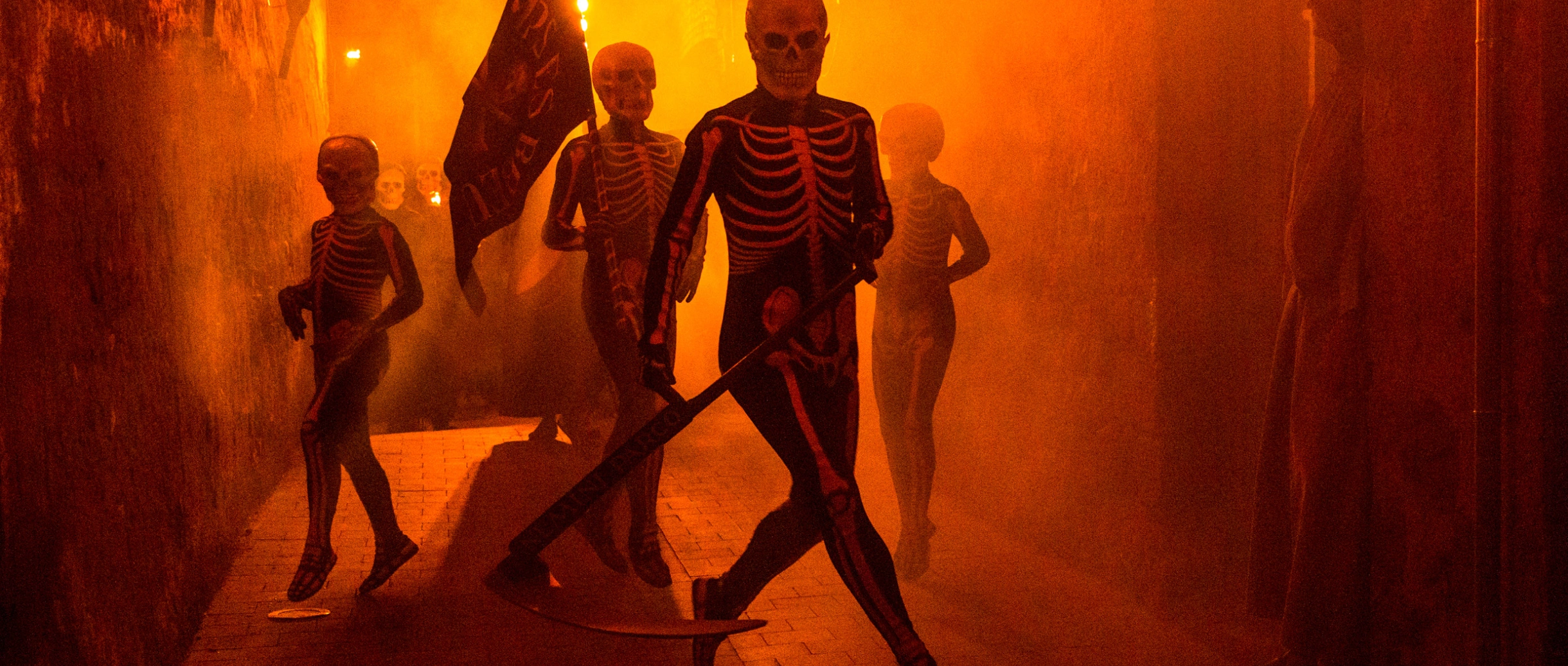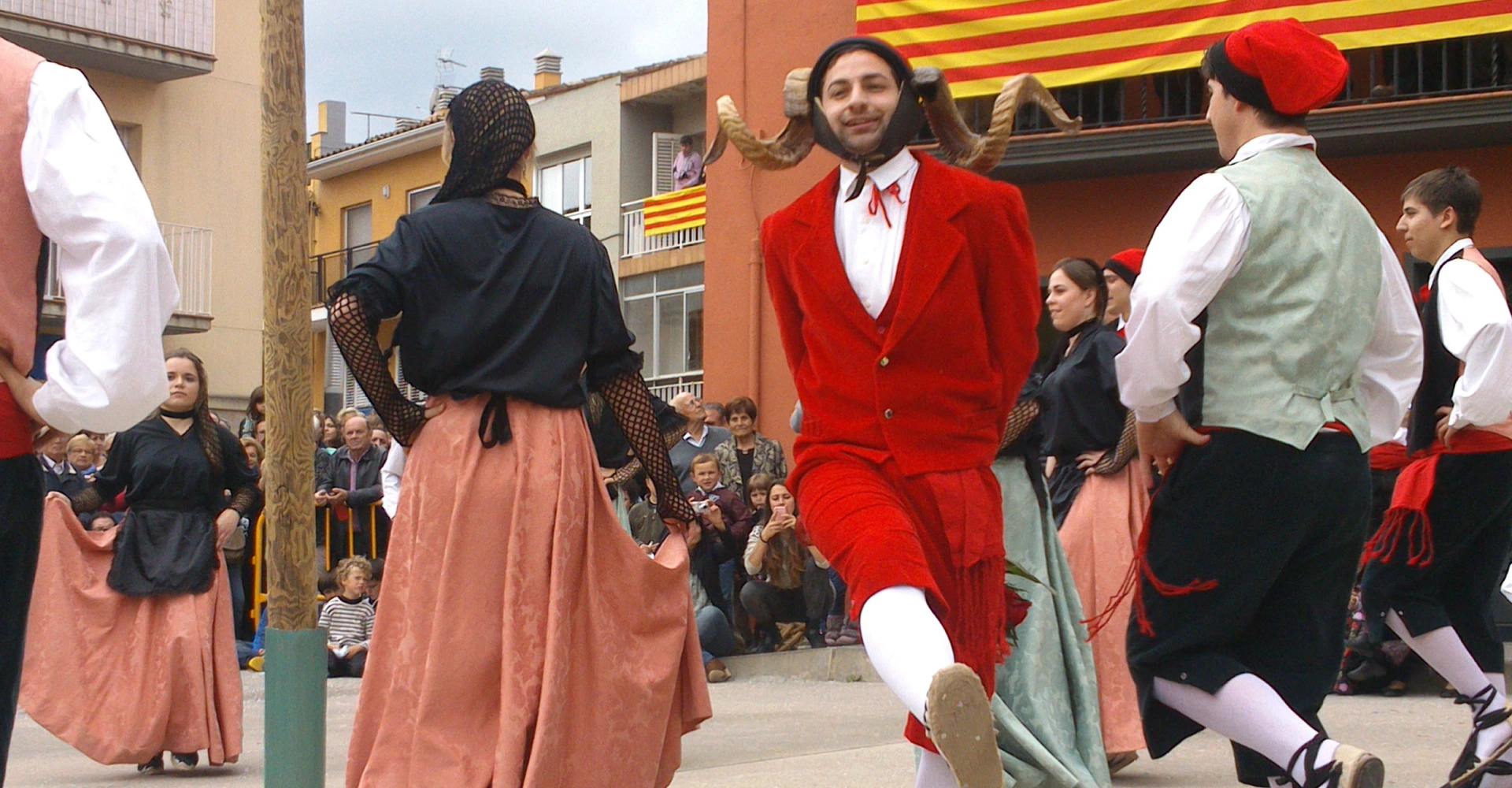

Блог

My favourite place in the Girona regions? Ask me an easier question, please.
These are much more than local celebrations. Much more than dates on the cultural events calendar. They are Traditional Festivals of National Interest that make for unique and unmissable experiences.
Culture, tradition, identity… and lots of good cheer. There is nothing like discovering a town on the Costa Brava or Girona Pyrenees at festival time. The streets are transformed into spaces that are teeming with life, music and dances featuring the gegants (giants), capgrossos (bigheads) and other traditional festival figures so loved and revered by the locals.
In many places you can witness the incredible spectacle of the famous castellers for yourself, holding your breath as the sky-scraping human towers take shape. Or watch the diables troupes put on their correfoc displays of fast-paced drums and pyrotechnics.
Celebrations that are not only completely unique but also loaded with local tradition and identity. These are Traditional Festivals of National Interest. Ancestral festivals with origins that stretch back over the generations that are a real joy to discover and celebrate along with the locals.

The residents of Sant Hilari Sacalm celebrate Good Friday with one of the Catalan festive calendar’s most popular and exciting Easter processions. The Living Stations of the Cross is a theatrical representation that narrates the Passion and death of Jesus in a procession made up of fourteen scenes that begins with a re-enactment of the trial before Pontius Pilate in the Church Square and slowly makes its way through the streets of the town, marching to the beat of the tabla drums before ending up on the hill for the Crucifixion, one of the most moving scenes of this traditional event that has been taking place here for over three centuries.

In the days leading up to the 7 and 8 August the Garrotxa capital gears up for its Festa Major in honour of the city’s patron saint, the Our Lady of Tura. The most highly anticipated event of the many activities that take place are the processions and the traditional dance of the gegants (giants), nans (figures with huge heads) and cavellets (horses). The central square is packed full to overflowing. The cobla band plays traditional music and the figures come to life to perform the dances and rituals of a solemn, majestic and impressive celebration.

If you ever have the opportunity to visit Verges on Maundy Thursday, you are in for a treat. This is the main day of the town’s Holy Week celebrations that commemorate the passion and death of Christ in which you will experience the spectacle of unique traditions, such as the lighting up of Carrer dels Cargols with small oil lamps made from snail shells and the spectacular Dance of Death, a performance that dates back to the Middle Ages, in which five dancers dressed as skeletons herald the inevitable arrival of death.

Every year, this town at the foot of the Montseny massif decorates its streets with carpets of flowers. It sounds like the start of a beautiful tale, and it is certainly a tradition that evokes a special magic. The flower carpets are a true example of collective effort among the residents of Arbúcies, who work together during every part of the process (design, collection of flowers and leaves, making of the carpets…), and also of ephemeral art: they are created in the morning and, in the afternoon, a grand parade of giants, pipers and floats passes through the streets, trampling the designs and turning them into a colourful mosaic of petals.

Cornellà del Terri celebrates its Festa Major festival during Easter weekend where the focus is on joy, dancing and good vibes. The celebrations begin with a group of local residents heading out into the forest in search of the tallest tree they can find, which they name as the May tree. This is then cut down and taken back to the town square where it is decorated with animal horns and antlers. The May tree forms the heart of the many festive activities that take place, such as the Ball del Cornut, a grand group dance to the beat of joyful music and with the inclusion of a mysterious figure with large twisted goat’s horns.

A series of dances with a long tradition form the main event of the Sant Feliu de Pallerols annual festival that takes place in early June. The dances tell the story of a legendary battle that took place between the town and the Saracens. Five small horses, two giants and a mule pass through the streets dancing to the rhythm set by the cobla band to commemorate the people of Sant Feliu’s victory over the enemy. Legend has it that the locals were outnumbered by the invading Muslim army but managed to trick them into retreat by building wooden horses, giants and a beast (the giant mule).
Christmas in Catalonia would not be the same without its living nativities and pastorets plays. Some towns tell the story of the birth of Christ through living nativities, with local residents starring in theatrical re-enactments of the nativity scenes. One of the most well-known takes place in Bàscara, a small town in Empordà.
Els Pastorets is also a big part of Catalonia’s cultural heritage. A tradition that dates back to medieval times, these plays, now modernised, that tell the story of the birth of Jesus and are a hugely popular part of the Christmas celebrations all over Catalonia.
Travel writer and photographer, Sherry Ott, delves into the world of Catalan folklore and goes behind the scenes to experience the festivals with the Fal·lera Gironina and Marrecs de Salt human towers troupes.